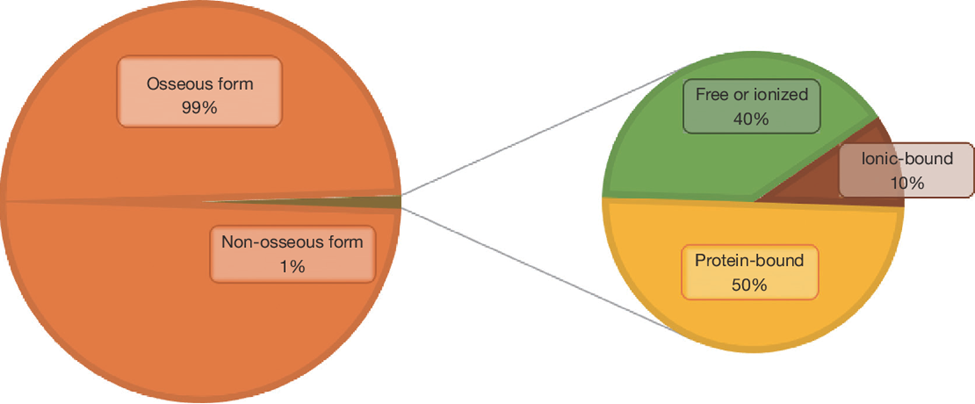Calcium, particularly in its ionized form, is crucial for various bodily functions like bone health, muscle contraction, and nerve signaling.
While most of the body's calcium is stored in bones, a small but significant amount circulates in the blood, partly bound to proteins like albumin and partly as free, bioavailable ionized calcium.
Low levels of ionized calcium can lead to muscle and nerve disturbances and are linked to conditions like hypoparathyroidism, while high levels may be associated with underlying health issues such as bone breakdown, kidney disease, and cardiovascular disorders.
Maintaining balanced levels of ionized calcium is essential for overall health, and both low and high levels can have significant health implications, including impacts on mortality rates.
Monitoring ionized calcium, alongside other health indicators, can provide crucial insights into an individual's health status, especially in specific medical conditions or critical care situations.
Body repartition of the different calcium forms

Source: Hamroun, Aghilès, et al. "Ionized calcium: analytical challenges and clinical relevance." J Lab Precis Med 5 (2020): 22. his is an Open Access article distributed in accordance with the Creative Commons Attribution-NonCommercial-NoDerivs 4.0 International License (CC BY-NC-ND 4.0), https://creativecommons.org/licenses/by-nc-nd/ https://www.researchgate.net/profile/Guillaume-Grzych/publication/342550301_Ionized_calcium_analytical_challenges_and_clinical_relevance/links/5efafac4a6fdcc4ca43d9ffb/Ionized-calcium-analytical-challenges-and-clinical-relevance.pdf
CLICK HERE to learn more about Ionized calcium, health consequences, the ODX ranges, etc.